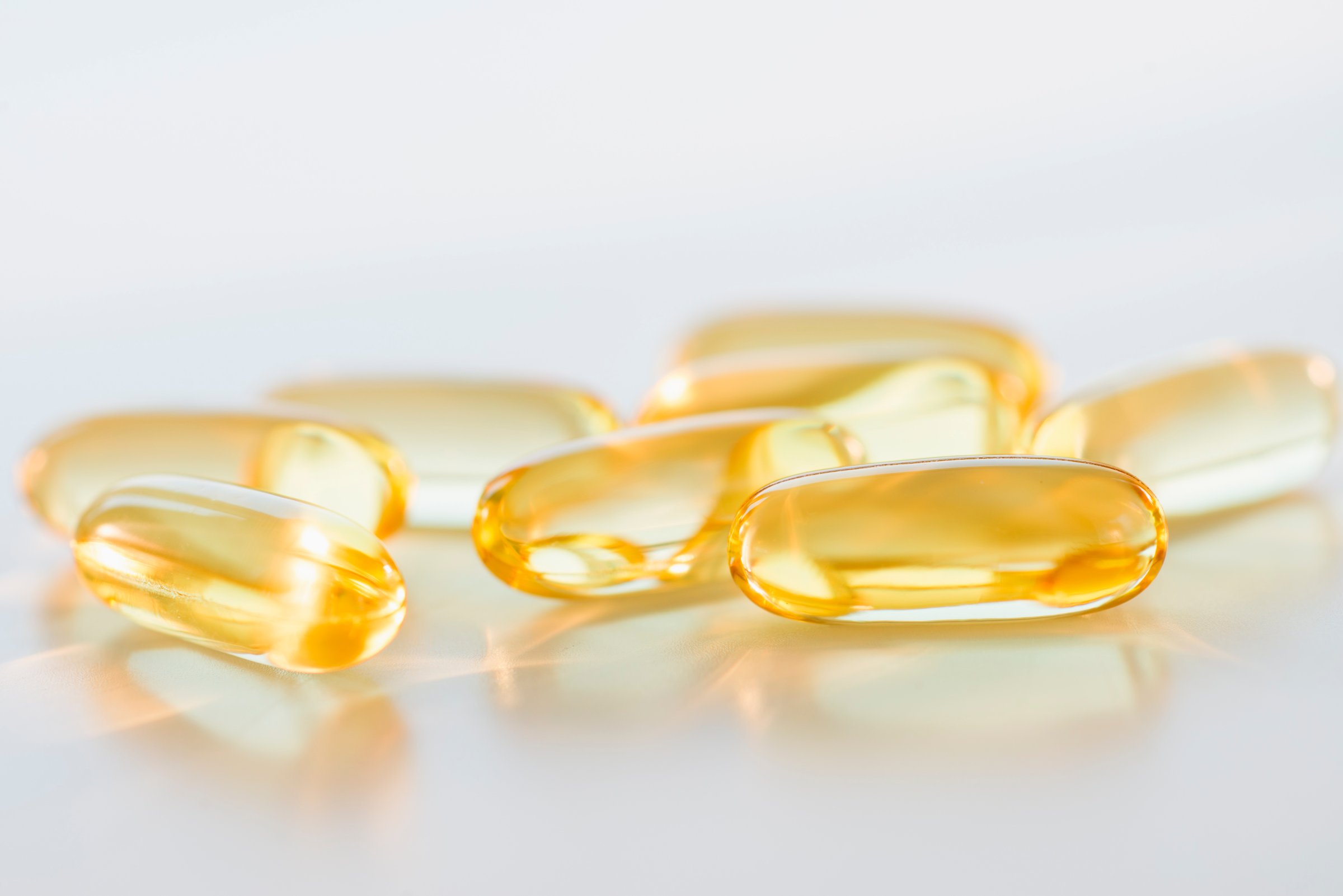
It wasn’t something Dr. Emilie Voest and his colleagues expected to see, but in their labs, they found a disturbing connection between fatty acids and their effect on chemotherapy drugs. Fatty acids—the good fats found in fish like mackerel, salmon and sardines—turn out to work against chemotherapy agents in cancer patients, according to research published Thursday.
Voest, medical director of the Netherlands Cancer Institute, stumbled upon this in 2011 when he found that certain stem cells in mice with cancer that he was studying also produced fatty acids — and that these fats neutralized the effects of chemotherapy. Would the same occur in cancer patients, he wondered, who took fish oil supplements or ate fatty fish?
MORE: Omega 3s Reality Check: Are We Over-Exaggerating Their Benefits?
In a series of experiments described in JAMA Oncology, he and his team established that after getting fish oil supplements from commercially available brands, mice showed higher blood levels of the fatty acids for several hours. The same happened when healthy volunteers took one of two doses of fish oil supplements from three popular brands. Even at the lower dose, which was the recommended daily amount of fish oil of 10 ml (about two teaspoons), levels of fatty acids in the blood of the volunteers doubled on average after several hours.
In mice with tumors who were also given chemotherapy, the fish oil supplements suppressed the anti-tumor effects of the chemotherapy; “You lose at least half the effect of the chemotherapy” because of the fish oil, says Voest.
MORE: Fish Oil Fail: Omega-3s May Not Protect Brain Health After All
He stresses that there’s still a lot about the connection between fish oil and chemotherapy drugs that isn’t known. The effect seems to be limited to certain cytotoxic chemotherapy agents that work by damaging the DNA of tumor cells; some more targeted chemo agents won’t be as affected by the fatty acids. Voest also notes that fish oil supplements, because they aren’t regulated by the U.S. Food and Drug Administration, vary widely on how much fatty acids they contain. What’s more, the content of fish oil can change from pill to pill or drop to drop.
“I don’t want patients who had chemotherapy in the past and it didn’t work to think that it was their fault because they took fish oil,” he says. “Obviously there is a balance between how sensitive a tumor is to chemo v the resistance-causing effect of fatty acids.”
MORE: Omega-3 Supplements Don’t Lower Heart Disease Risk After All
In his studies, Voest also analyzed the effects of fish oil from eating fish among healthy volunteers without cancer; mackerel and herring — even at servings slightly smaller than a deck of cards — were two that contributed to the biggest peaks in fatty acid levels in the blood several hours later. Salmon and tuna only led to negligible blips in this particular study.
The one thing Voest and his team could not do was test the effects of fish oil on cancer patients. Because mouse studies showed that fish oil could compromise the effects of chemotherapy, he says it was “unethical in our view to demonstrate that chemo combined with fish oil was less effective than chemo alone,” he says, since some patients may be receiving an intentionally inferior therapy.
“These authors went beyond theory and showed with animal data that there may be an impact,” says Dr. Don Dizon, co-director of gynecologic oncology at Massachusetts General Hospital and a spokesperson for the American Society of Clinical Oncology, who was not involved in the research. “And in the absence of human data, we need to take this quite seriously and discuss these results with our patients.”
With most supplements, Dizon says, it’s difficult to counsel patients since there isn’t even data from animal studies to guide doctors, as there now is with fish oil. Dizon says he advises patients getting chemo to avoid taking antioxidants, for example, but only because in theory, chemotherapy causes oxidative stress and the supplements may counter that effect. “But I have absolutely no data to support that.”
But between the animal studies and the tests on healthy human volunteers, he’s more comfortable advising patients about fish oil. “I think I will be using this clinically, and discussing it with my patients,” says Dizon, especially since he relies on a DNA-damaging chemotherapy agents to treat the cancers he sees. Voest also says he’s advising patients to avoid taking fish oil or eating large amounts of fish on the day before, the day of and the day after receiving chemo. That may be difficult for some, especially since cancer websites advise patients to take fish oil as a way to reduce side effects from chemotherapy. But, as Voest says, “now we know why.” It may be that the fish oil is hampering the anti-cancer effects of the drugs instead of mitigating their adverse effects.
Voest is planning on studying the biological link between fatty acids and chemotherapy drugs more carefully. He’s also launching a clinical trial to see if a compound that inhibits the function of fatty acids might work to improve chemotherapy’s effect in patients taking fish oil and getting chemo.
More Must-Reads from TIME
- Why Trump’s Message Worked on Latino Men
- What Trump’s Win Could Mean for Housing
- The 100 Must-Read Books of 2024
- Sleep Doctors Share the 1 Tip That’s Changed Their Lives
- Column: Let’s Bring Back Romance
- What It’s Like to Have Long COVID As a Kid
- FX’s Say Nothing Is the Must-Watch Political Thriller of 2024
- Merle Bombardieri Is Helping People Make the Baby Decision
Contact us at letters@time.com